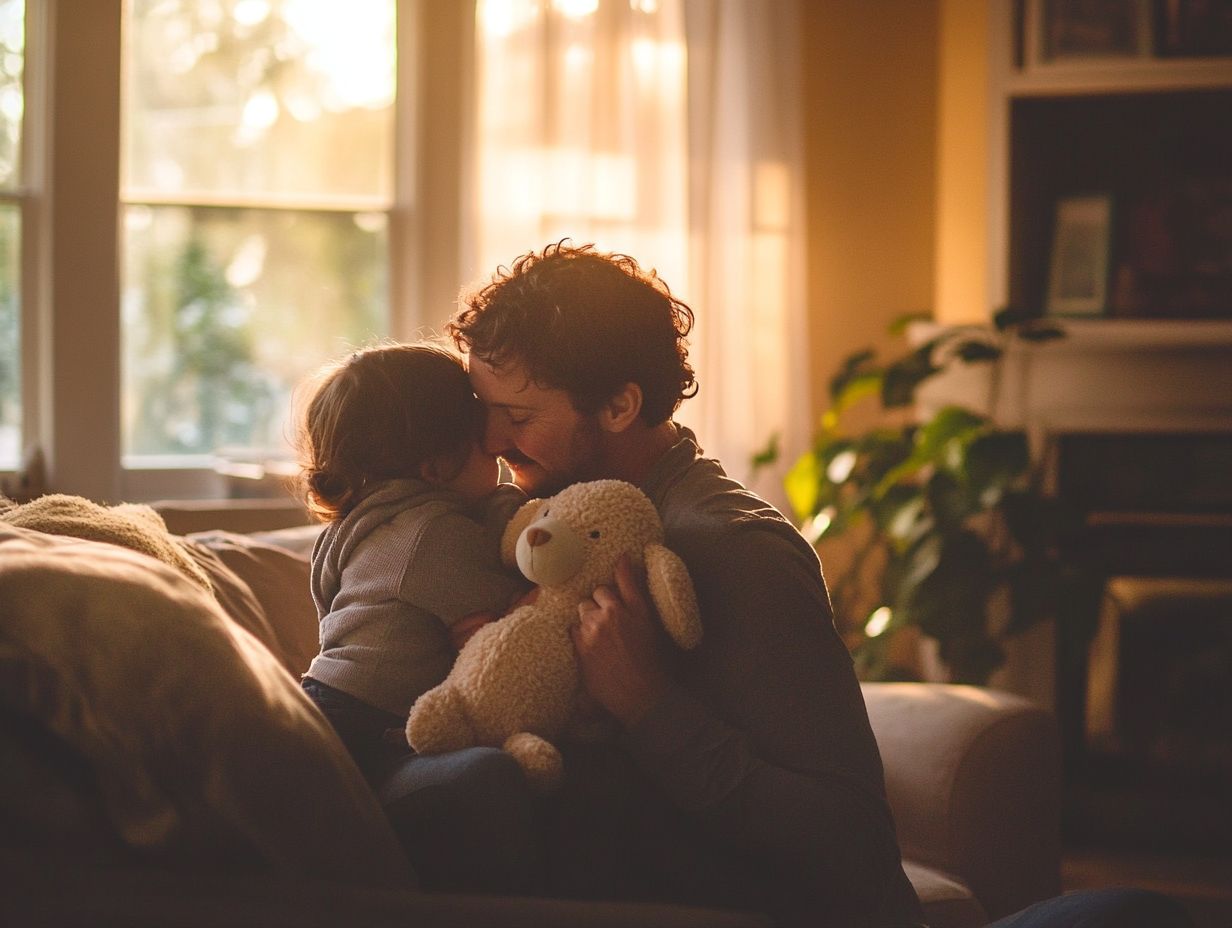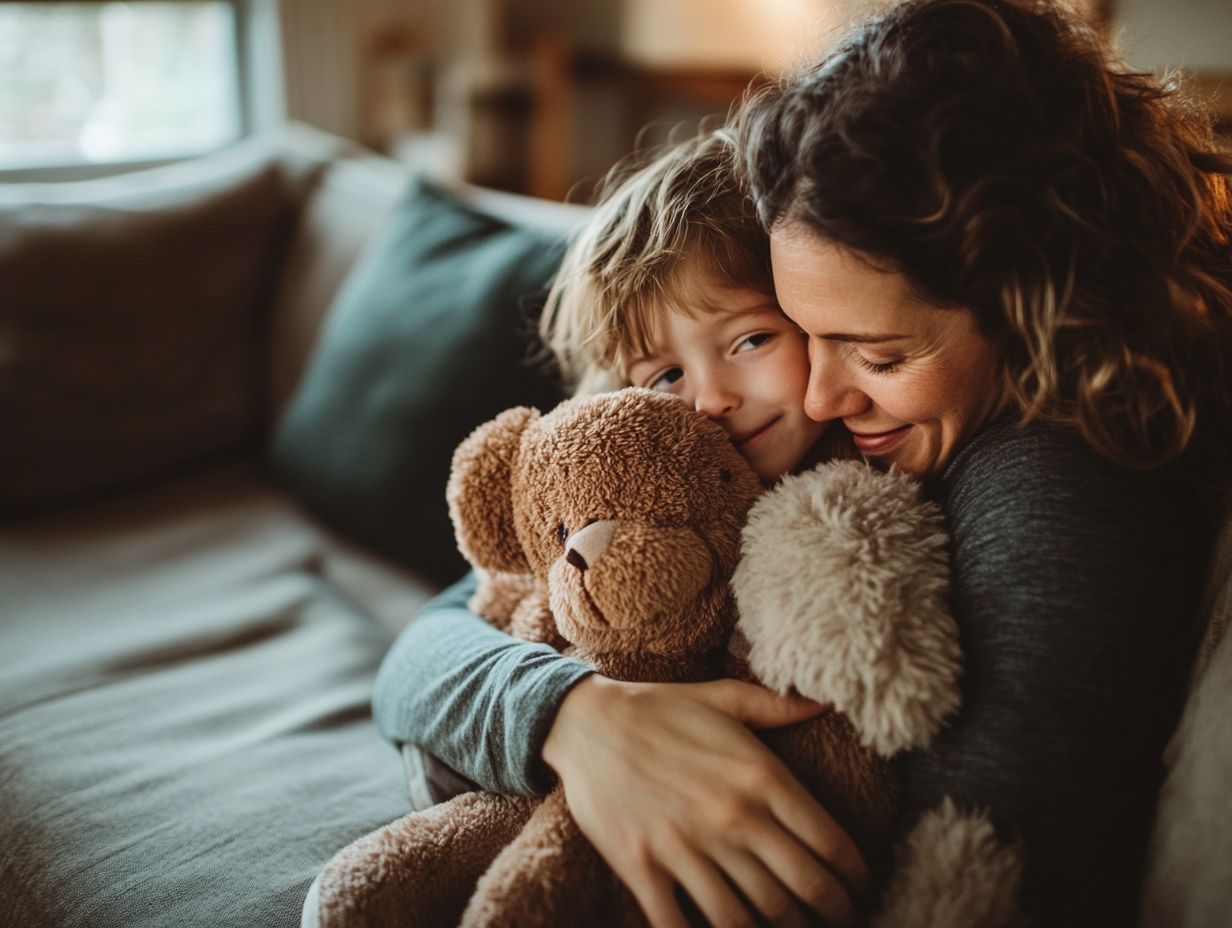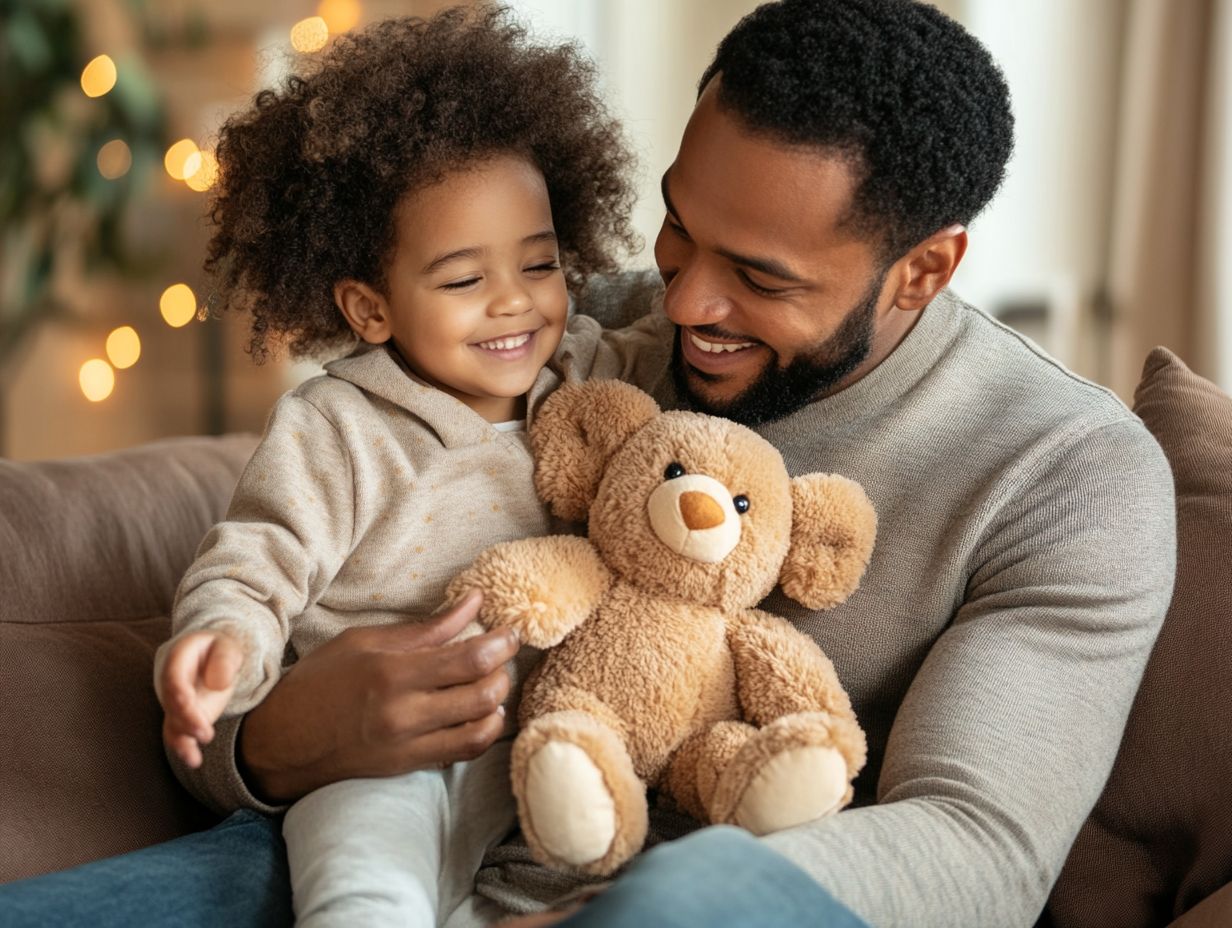Coping with a child’s cancer diagnosis can be an overwhelming experience for both the child and their family. Understanding childhood cancer involves recognizing the varied types, such as leukemia and brain tumors, and the specific treatments required. Approximately 15,000 new cases are diagnosed annually in the U.S., highlighting the need for effective support systems and community resources.
Providing emotional support is crucial, as it helps children process their diagnosis and manage fear and anxiety. This can be achieved through open communication, relaxation techniques, and maintaining daily routines with the help of family and friends.
Practical support, such as managing appointments and coordinating with healthcare teams, is essential for ensuring effective treatment.
To support your child’s mental health, consider engaging mental health professionals and building a community network. Encouraging positive coping mechanisms like creative activities and mindfulness can enhance emotional resilience. By fostering a supportive environment filled with love and trust, parents can help their child navigate this challenging journey with strength and understanding.
Key Takeaways:
Understanding Childhood Cancer

Childhood cancer refers to a range of cancers that occur in children, affecting their health, treatment options, and emotional well-being. It is crucial for parents and caregivers to understand the implications of the diagnosis and the necessary care.
Understanding childhood cancer involves recognizing its impact on the child and their family, navigating healthcare services, and accessing support systems to manage diagnosis and treatment.
Types of Childhood Cancer
Types of childhood cancer include leukemia, brain tumors, and sarcomas. A thorough understanding helps families prepare for potential emotional changes and medical procedures.
Leukemia affects blood and bone marrow. Brain tumors impact the central nervous system. Sarcomas develop in bones and soft tissues.
Each type requires specific medical interventions.
Statistics and Risk Factors
Statistics on childhood cancer report approximately 15,000 new cases annually in the United States.
Risk factors for childhood cancer include genetic predispositions and environmental influences such as chemical and radiation exposure. The overall survival rate for childhood cancer is about 85%. Disparities in outcomes exist based on ethnicity, socioeconomic status, and access to quality health care, which can involve different hospital settings and expertise levels among the healthcare team.
Emotional Support for Your Child
Emotional support for a child with cancer involves providing understanding, open communication, and a supportive environment from parents, siblings, and friends.
Encouraging children to express emotions and ask questions about their treatment helps reduce feelings of isolation.
Support groups and community resources offer additional guidance and information. Connecting with a support group can provide relationships that help foster emotional resilience and offer expert knowledge in managing the journey.
Helping Your Child Process the Diagnosis

Helping a child process a cancer diagnosis involves open communication and using age-appropriate language to explain the condition. Parents should encourage questions and validate emotional changes to create a trusting environment. By fostering a supportive atmosphere, parents aid comprehension and strengthen their bond with the child, while also preparing them for treatment procedures and time in the hospital.
Managing Fear and Anxiety
Managing fear and anxiety in children with cancer requires effective coping strategies and emotional support from parents, healthcare teams, and siblings. Involving siblings in conversations about the child’s condition can help maintain normalcy and understanding within the family.
Strategies include:
- Using relaxation techniques like deep breathing and guided imagery,
- Engaging in normal activities to maintain routine, and
- Providing parental support for open dialogue.
These approaches help children manage emotions during cancer treatment.
Practical Support for Your Child
Practical support for children undergoing cancer treatment involves managing medical appointments, coordinating treatment schedules, and ensuring optimal care through communication with healthcare teams. Practical support also includes facilitating proper nutrition and organizing activities for siblings to maintain family connections, which helps in maintaining a sense of normal life. Advocacy for the child’s needs in hospital and community settings is a key component of practical support, ensuring they receive appropriate care and education.
Managing Treatments and Appointments
Managing treatments and appointments for a child with cancer involves organizing schedules, communicating with the healthcare team, and using tools to track visits and treatments.
Effective management ensures timely appointments and responses to health changes.
Parents should coordinate chemotherapy, follow-up visits, and evaluations while maintaining open communication with healthcare providers.
Dealing with Side Effects

Dealing with side effects in children undergoing cancer treatment involves managing symptoms like nausea, fatigue, and hair loss through medical support and lifestyle adjustments.
Physical strategies include tailored nutritional support to ensure balanced meals.
Emotional support through counseling and peer groups helps children cope with treatment stress.
Supporting Your Child’s Mental Health
Supporting your child’s mental health during cancer treatment involves engaging mental health professionals, such as psychologists or counselors, to provide specialized support.
Building a community support network can enhance emotional resilience and make the treatment journey less isolating for the child and family.
Finding Professional Help
Finding professional help for a child’s mental health during cancer treatment involves locating mental health specialists experienced in pediatric oncology.
Research specialists trained in grief, anxiety, and adjustment issues related to serious illnesses.
Seek professionals offering counseling and coping strategies tailored for children.
Explore community resources like support groups and workshops for additional support.
Encouraging Positive Coping Mechanisms
Encouraging positive coping mechanisms in children with cancer is crucial for emotional health and adjustment during treatment. These coping strategies can include creative play, regular physical activities, and structured routines to provide a sense of normalcy.
Positive mechanisms include:
- Creative activities like drawing and storytelling for emotional expression,
- Physical exercise for emotional release,
- Mindfulness practices for calmness.
Support from parents and the community helps nurture these strategies, enableing children to manage stress with resilience.
Frequently Asked Questions

What resources are available to help my child cope with a cancer diagnosis?
There are several organizations and support groups that offer resources specifically tailored for children and families dealing with cancer. These can include therapy services, educational materials, and peer support programs.
How can I talk to my child about their cancer diagnosis?
Honest and open communication is key when discussing a cancer diagnosis with your child. It’s important to use age-appropriate language and to be prepared to answer any questions they may have. It’s also important to reassure them that they are not alone in this journey and that they have the support and love of their family, friends, and the medical team.
What can I do to support my child emotionally during their cancer treatment?
One of the best things you can do to support your child is to listen to their feelings and validate them. Encouraging them to express their emotions can help them process their experience. Additionally, finding activities or hobbies that bring them joy can help alleviate some of the stress and anxiety they may be feeling. It is essential to maintain open lines of communication and to ensure they feel heard and supported at all times.
Are there any practical ways I can help my child cope with their cancer diagnosis?
Practical support can include helping with household chores, meal preparation, and managing appointments and medication schedules. It’s also important to maintain a sense of normalcy for your child, so incorporating familiar routines and activities can be beneficial. Engaging siblings in these routines helps to strengthen family connections and make the child feel more at ease with the support from their loved ones.
How can I take care of myself while supporting my child through their cancer diagnosis?
Caring for a child with cancer can be emotionally and physically draining. It’s important to prioritize self-care and seek support for yourself as well. This can include talking to a therapist, joining a support group, or finding healthy outlets for stress relief. Building a network of community support can also provide essential resources and help to manage the emotional and practical aspects of your child’s care.
Will my child have a normal life after their cancer diagnosis?
While a cancer diagnosis may bring about many changes and challenges, it’s important to remember that there is life after treatment. Many children go on to lead happy and fulfilling lives, and with the right support, resources, and community connections, your child can too. Emphasizing positive relationships and a supportive environment will help your child adapt to post-treatment life.





